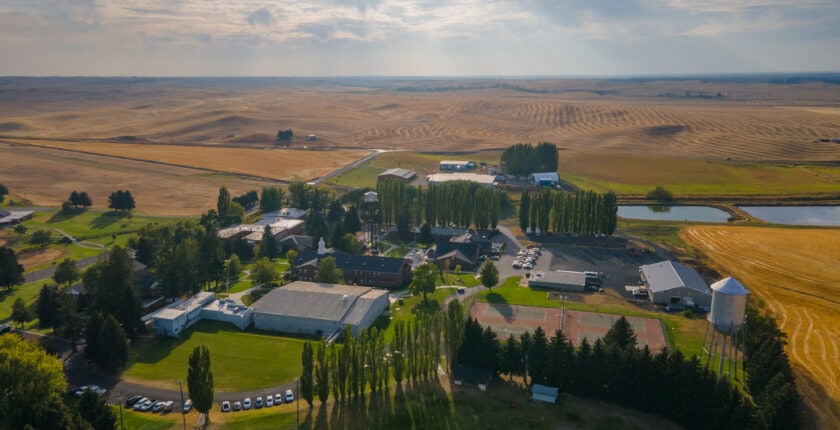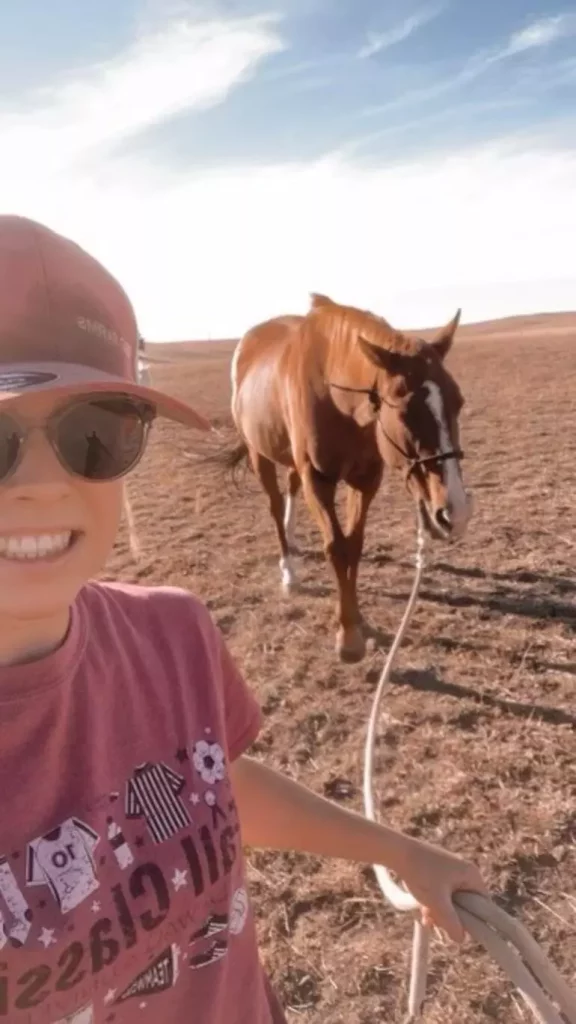
“Mary had a little lamb ....” Almost everyone in North America recognizes the nursery rhyme about Mary’s pet lamb and the ensuing chaos when he followed her to school one day, so it’s no surprise that most people don’t ever question the “no pets” rule at a boarding academy.
For numerous reasons, it isn’t practical to allow animals in a school setting. That began to change at Upper Columbia Academy (UCA) when the Riding Center opened on the school campus in Spangle, Washington, United States, making it possible for students to bring a horse to school.
This is a dream come true for horse enthusiasts, and for several current students it was the deciding factor in choosing to attend. Now in its fifth year of operation, the riding center has more than 25 students enrolled in a variety of programs and classes.
Students can bring their own horse from home and board it at the school’s boarding facility, or they can partially lease one of the horses already contracted to the school from Camp MiVoden in northern Idaho. With an active United States Pony Club Riding Center and Certified Horsemanship Association instructors, the school’s barn is also a resource for the local community.
“Students thrive in the barn in ways that are unavailable to them in other academic settings. Direct involvement with horses inspires a type of connection and empathy that is not found anywhere else,” program director and coach Holly Haeger said.

Haeger is passionate about horses and kids. Her commitment to excellence is apparent in the way she interacts with students and in her day-to-day management of the barn. As an educator for more than 20 years, in addition to her professional equestrian experience, Haeger is well aware of the advantages of interacting with horses, and she is dedicated to making this opportunity available to as many as possible.
Limited scholarship funds are available now, and the goal is to grow these funds so that the program is accessible to anyone, regardless of economic background. Reduced anxiety and stress, sharper focus, and improved communication skills are just a few of the many benefits Haeger has observed.
“I had almost no exposure to horses before I came to UCA,” senior Chloe Whitmore said. “I had ridden a couple of times, and horses were very interesting to me, but I was scared. Now I’ve been part of the program for almost four years, and somewhere along the way the fear stopped. I started as a beginner, but now I have the knowledge I need to enjoy horses for the rest of my life.”
She added that her time in the barn has been important because she learned real life skills. “Everyone takes responsibility for feeding, grooming, and cleaning up — it’s so much more than just riding,” Whitmore said. “The skills I’ve gained from working with the horses follow me into other parts of my life. I’m much more confident.”
Haeger agreed. “The culture of the barn is positive, encouraging, and a place where students are taught how to learn and teach,” she said. “If you need an entirely different kind of learning and growth, this is where it happens. Here we work on facing our fears and competing with ourselves. It's the best life preparation I know, and what better way to get to know our Maker than to work with and care for His creatures daily?”
The original version of this story was posted on the North Pacific Union Conference Gleaner news site.